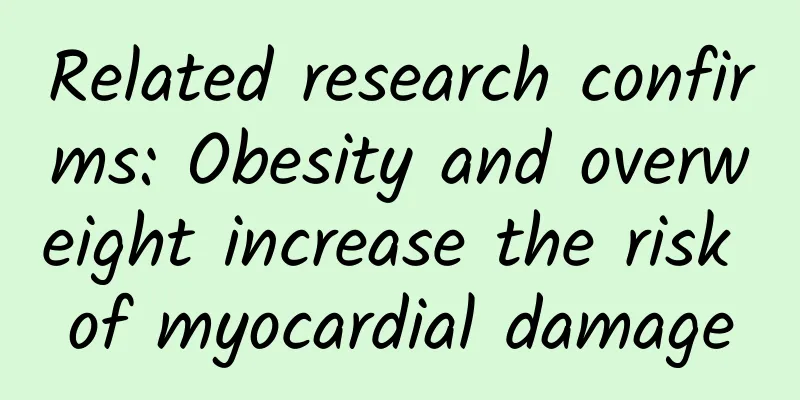What are the benefits and functions of lettuce? When is lettuce a vegetable?

|
Lettuce is a summer vegetable, but now it is available all year round. Greenhouses have solved the seasonal problem for everyone. The most prominent feature of lettuce is that it is super low in fat and calories. If you want to lose weight, lettuce is your best choice. The specific benefits of lettuce are shared with you below. Contents of this article 1. The benefits and functions of lettuce 2. What season is lettuce a vegetable in? 3. Who should not eat lettuce? 1The benefits and effects of lettucesenescence Lettuce contains antioxidants, beta-carotene, vitamins B1, B2, B6, vitamin C and vitamin E. People who use their eyes frequently can eat more lettuce to supplement vitamins (B-carotene can be converted into vitamins in the human body); and vitamin E has the effect of delaying cell aging and can regulate the body's functions. lose weight Lettuce contains dietary fiber and vitamin C, which can help eliminate excess fat. Lettuce has a high water content and is very nutritious. Its most prominent feature is that it is super low in fat and calories. If you want to lose weight, lettuce is your best choice. Strengthen gastrointestinal function Lettuce can also help us strengthen gastrointestinal function and make our stomach healthier. Lettuce is rich in B vitamins, vitamins C and E, as well as dietary fiber and a variety of minerals. Eating more lettuce is beneficial to the human digestive system. Lettuce can promote blood circulation in the gastrointestinal tract and help digestion of macromolecules such as fat and protein. Detoxification, diuresis Lettuce contains effective ingredients such as mannitol, which can remove waste from the blood, disinfect the blood, promote blood circulation, and have a diuretic effect. It can also remove toxins in the intestines and prevent constipation. Promotes child development Lettuce is rich in vitamin C, which can enhance your baby's immunity. Lettuce contains minerals such as calcium, iron, and copper. Calcium is the main substance for the development of baby's bones and teeth, and can also prevent and treat rickets. Iron and copper can promote the synthesis of hemoglobin, stimulate the development of red blood cells, prevent baby's loss of appetite and anemia, and promote growth and development. Adjusting acidity and base The body's acid-base balance is an important condition for maintaining health, and lettuce can achieve this. Raw vegetables are alkaline foods, which neutralize acidic foods such as grains and meat, and have the function of adjusting the acid-base balance of body fluids. Preventing constipation Lettuce is rich in dietary fiber, which can also prevent constipation in children. Liver care Lettuce can also protect the liver, promote bile formation, prevent bile stasis, and effectively prevent cholelithiasis and cholecystitis. Lowers cholesterol Because lettuce contains lactucin in its stems and leaves, it tastes slightly bitter and has the effects of analgesia, hypnosis, lowering cholesterol, assisting in the treatment of neurasthenia, and hypnosis. Suppress viruses Lettuce contains an "interferon inducer" that can stimulate normal cells in the human body to produce interferon, thereby producing an "antiviral protein" to inhibit viruses. 2What season is lettuce?Lettuce is a summer vegetable and is more common in summer. However, with the current advanced planting technology, it can be grown in greenhouses in winter, so it can be grown all year round and freshly picked and put on the market. It has a strong adaptability. Planting it in a greenhouse can control temperature and keep moisture well, so it will grow faster and can be harvested and eaten soon after planting. 3Who should not eat lettuce?People with weak spleen and stomach and cold constitution Lettuce is cold in nature, so people with frequent urination and cold stomach should not eat it. Lettuce is sweet and cool in nature. Because its stems and leaves contain lettuce, it tastes slightly bitter and has the effects of clearing away heat and refreshing the mind, relieving pain and inducing hypnosis, lowering cholesterol, and assisting in the treatment of neurasthenia. Because it is sweet and cool in nature, people with cold nature should eat less. Kidney patients Don’t eat lettuce, because it contains high potassium ions, which can aggravate uremia. Kidney patients are advised to blanch vegetables first to lose potassium ions before eating, so as not to increase the burden on the kidneys. |
<<: Is kale lettuce? Why can lettuce be eaten raw?
Recommend
Canalys: Apple's smartphone shipments accounted for 22% of the global total in Q4 2021
According to the official WeChat account of Canal...
What to do if you have abdominal pain after taking Mirena
Mirena (levonorgestrel intrauterine contraceptive...
What are the techniques for applying false eyelashes?
It is understandable that little girls love beaut...
Globalwebindex: Global mobile internet usage reaches 65%
As we all know, the number of Internet users arou...
Precautions for pregnancy 1 to 3 months
The whole process of pregnancy can be roughly div...
Can pregnant women eat shrimp?
Shrimp is indeed delicious. Although seafood may ...
Latest research: Will intermittent fasting cause baldness? Scientific maintenance methods revealed!
As a popular diet, intermittent fasting has attra...
Does uterine cyst affect pregnancy?
Uterine cyst is a common gynecological disease. I...
Exercises to restore sagging breasts
Sagging breasts of women will affect the beauty o...
Best time to treat ovarian cysts
Ovarian cyst is a very inconvenient cyst disease ...
What should I do if I have breast hyperplasia?
Women's breasts are very sensitive and can be...
What are the benefits of eating durian for women
I believe that when people mention durian, their ...
What causes vaginal itching in women?
Nowadays, many women have vulvar itching. Because...
Can I still get pregnant with safe sex?
In daily life, many young couples have very littl...
What should I do if my car insurance expires during the epidemic? How long can I postpone the payment if my car insurance expires during the epidemic?
Affected by the new coronavirus, people's liv...









